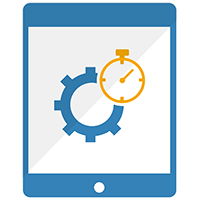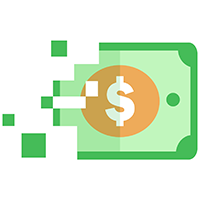Low Interest Ι Fixed Terms Ι Personal Loan
Checking your rate will not affect your credit score
Hearing Aid Financing for Borrowers
If you’re among the millions affected by hearing loss, you’re likely aware of the high costs associated with traditional hearing aids. Fortunately, there are financing solutions available to help make them more accessible and affordable.
At PowerPay, we specialize in providing top-notch hearing aid loans with competitive rates and favorable terms. We provide a streamlined and efficient loan process, ensuring a quick and hassle-free experience. If you’re seeking a way to make your new hearing aids more affordable, look no further than PowerPay.
The Benefits of Financing Hearing Aids with PowerPay
At PowerPay, we provide dedicated financing solutions tailored to healthcare procedures, enabling you to transform costly treatments into affordable monthly payments.
We offer financing specifically designed to help individuals cover the costs of hearing aid procedures. Our financing options provide several benefits, including:
- Soft credit pulls, so there’s no impact on your credit score.
- Ability to add a co-applicant to a loan.
- No prepayment penalties or deferred interest, so you can pay off your loan at any time without penalty.
- Low APRs and flexible repayment terms to help you pay your loans off affordably over time.
- Excellent customer service available to help you through every step of the process.
How to Apply
Applying for Hearing Aid Financing with PowerPay is Simple:
- Apply Online, In-Person, or Through Your Doctor: Choose the most convenient way to apply for hearing aid financing, including a personalized link through your trusted provider.
- Provide Basic Information and Documentation: Fill out an application form and provide basic personal information, including your treatment plan and a copy of your driver’s license for verification purposes.
- Sign Loan Documents: Once your application is approved, you’ll receive loan documents to review and sign electronically.
- Funding Your Dental Procedure: After signing the loan documents, your trusted provider will receive the funds necessary to cover the cost of your procedure, ensuring a seamless experience without any delays or complications.
- Begin Making Payments: Within 30 days of receiving your procedure, you’ll start making affordable monthly payments to PowerPay. Our flexible payment options make it convenient to manage your financial obligations.
At PowerPay, we strive to provide a hassle-free financing process, empowering you to prioritize your health. Take the first step towards a healthier smile by applying for dental financing with PowerPay today!

Industry best program
Up to 72 month terms, rates 9.99% to 12.99%
and max loan of $35,000

Streamlined process
Instant decisions and electronic loan documents
create a fast, easy flowing process

No prepayment penalties
Pay off part or all of the loan at any time
with no fees
Are hearing aids covered by insurance?
Generally, most hearing aids are not covered by insurance. However, there are a few exceptions. For example, in some cases, hearing aids may be covered if they are deemed to be medically necessary. Additionally, some insurance plans may cover a portion of the cost of hearing aids for those who meet certain eligibility criteria.
It’s important to note that the coverage provided by insurance companies can vary significantly from one company to another. Therefore, it’s important to contact your insurance company directly to find out exactly what is and is not covered under your plan.
Average costs of hearing aids:
There is a lot of variation in the cost of hearing aids, with the most affordable models costing around $1,800 and the priciest models setting you back up to $5,000 per pair.
That said, it’s important to select a hearing aid that suits your individual needs – so don’t be afraid to consult with a professional or request a trial period before making your final purchase.
With proper care and maintenance, your hearing aids should last several years, so it’s important to select a pair that will provide you with optimal sound quality and comfort.

Save Time.

Save Money.

Be Happy!
General Hearing Aid Financing FAQ
Does Medicare cover hearing aids?
Medicare Part B (medical insurance) covers one hearing aid every two years, with a $1,500 lifetime maximum benefit. There is also a Medicare Part B deductible, and you may have to pay 20% of the cost of the hearing aid after meeting the deductible.
There are other options available for those who need hearing aids but do not have Medicare Part B. Some private health insurers offer coverage for hearing aids, and there are also programs available through state governments and private organizations that provide financial assistance for purchasing hearing aids.
What are the best hearing aids?
There is no one-size-fits-all answer to this question, as the best hearing aids for you will depend on your specific needs and preferences. That said, some of the most popular hearing aids on the market today include digital hearing aids, wireless hearing aids, and invisible hearing aids.
Digital hearing aids are typically more expensive than analog hearing aids, but they offer many advantages. For example, they can be programmed to specifically meet your individual needs, they can be adjusted easily as your needs change, and they provide clear sound quality.
Wireless hearing aids transmit sound directly to your ear without the need for wires or cables, which makes them ideal for people who lead active lifestyles. And finally, invisible hearing aids are designed to be hidden inside your ear canal, making them virtually undetectable to others.
Reviews
PowerPay Hearing Aid Financing & Loan Options FAQ
For more information and answers to the top questions asked about PowerPay loans, visit our borrower financing FAQ page.

